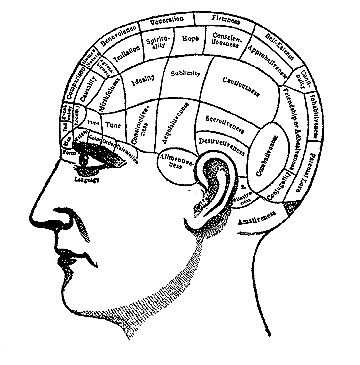
Philosophy of Language and Mind
| Andrew
Mills'
Homepage |
Course
Resources
Homepage |
Dept.
of Religion
and Philosophy |
 |
Philosophy
291
Philosophy of Language and Mind Spring Quarter 2001
|
Consider the sentence:
There have been other analyses of sentences containing non-referring definite descriptions. Here are two of them.
Gottlob Frege (pronounced "Fray-Ga") proposed that we arbitrarily select some object to be the referent of all non-referring definite descriptions. He suggested that we take the mathematical entity the empty set to be the thing that ‘the present king of France’ and all other non-referring definite descriptions refer to. This way those expressions are still meaningful, since there is something that is the expression’s meaning, and sentences like (1) will be meaningful as well. Of course, definite descriptions that do refer—"the first president of the United States"—take their referent as their meaning. The man, George Washington, is the meaning of that definite description, for instance.
P.F. Strawson, claimed that whenever we utter a sentence like (1) we presuppose that the definite description successfully refers. If that presupposition is wrong, and it fails to refer (as it does in (1)), then our utterance is ‘misfired’ and we have failed to say anything true or false. Think about the sentence "You have stopped cheating in class". One might say that I have said something that is neither true nor false if it is the case that you have never cheated in class. The reason is that this sentence presupposes that you have cheated in class before but that presupposition is, let us suppose, false. Here’s Strawson in his own words:
First, Sentence (1) is false according both to Russell and Frege, but for different reasons. Explain the difference. (This should take no more than a paragraph.)
Second, Whose view—Russell’s or Strawson’s—do you find preferable? That is, which view seems a more plausible and reasonable account of how the language operates? Is one view plagued with more oddities and unacceptable consequences than the other view? Does one view have more going for it than the other? Which one, and why?
The second part of this assignment is the more important part, and it is the strength of your reasoning and the clarity of your presentation that matters most here. I don’t care which side you take, but I do care very much that you give reasons in support of your view.
General Paper Writing Guidelines and Tips
Essays will be graded according to the following criteria: (i) The strength of your reasoning and argumentation (ii) Accuracy and clarity of your presentation of the philosophers’ views (iii) General stylistic and organizational matters--correct spelling, punctuation, no run-on sentences, etc.
Your paper should make it clear to someone who is not in our class just what is going on in this debate over the proper analysis of non-referring definite descriptions. Toward that end, you should write in whatever style is most comfortable. Most philosophical writing is in the first person (that is, the author uses "I" and talks to the reader), and if you find that style comfortable, you should use it. There is no need for dramatic opening paragraphs ("Ever since the dawn of time, mankind has struggled with the problem of non-referring definite descriptions....") nor sweeping conclusions. Simply tell the reader what you are going to do, and then do it. I find it best to conceive of your reader not as me, nor even as someone else in the class, but rather as an intelligent person who has read the other meditations but not this particular one. Thinking of your reader in this way will force you to be clear and precise and fully explain yourself.
As to mechanics, your paper should be 500-750 words long (about 2 to 3 pages), and is due to Prof. Mills on 12 April 2001. You can email your paper, or put it in my mailbox (located in the Towers Faculty Suite, on the second floor, in the back of the building). Please turn in two copies of your paper. It must be typed, double-spaced, and in a reasonable font (something ordinary like 12 point Times New Roman), with one inch margins all around. Your paper should have a title (and not something boring like "Philosophy Paper"), and should be stapled (not paper-clipped) in the upper left-hand corner. Elaborate report covers and folders are not necessary. Please proofread your paper. In the age of spell-checkers, there is no excuse for spelling errors, but you should read your paper over before handing it in--if you need to make a last minute correction by hand, that is fine. Do make sure to keep a copy of your paper in case something unforseen should happen to the copy you hand in. Late papers will not be accepted without previous approval from Prof. Mills.